‘Frank Capra: Mr. America’ Review: Documentary Gives Penetrating Insight Into Filmmaker Who Made Classics But Also Named Names – Venice Film Festival
- Oops!Something went wrong.Please try again later.
- Oops!Something went wrong.Please try again later.
- Oops!Something went wrong.Please try again later.
- Oops!Something went wrong.Please try again later.

Who can forget the delightful hitchhiking scene in It Happened One Night, or Clarence the angel earning his wings in It’s a Wonderful Life, or Mr. Smith collapsing in the midst of his epic filibuster in Mr. Smith Goes to Washington?
Those black and white moments and the films they’re a part of are deeply embedded in our collective cultural memory, all crafted by an unlikely cinematic author: Frank Capra, a diminutive immigrant from Sicily, born to uneducated parents, who appeared destined not for a life in the dream factory of Hollywood, but a faceless working stiff’s existence.
More from Deadline
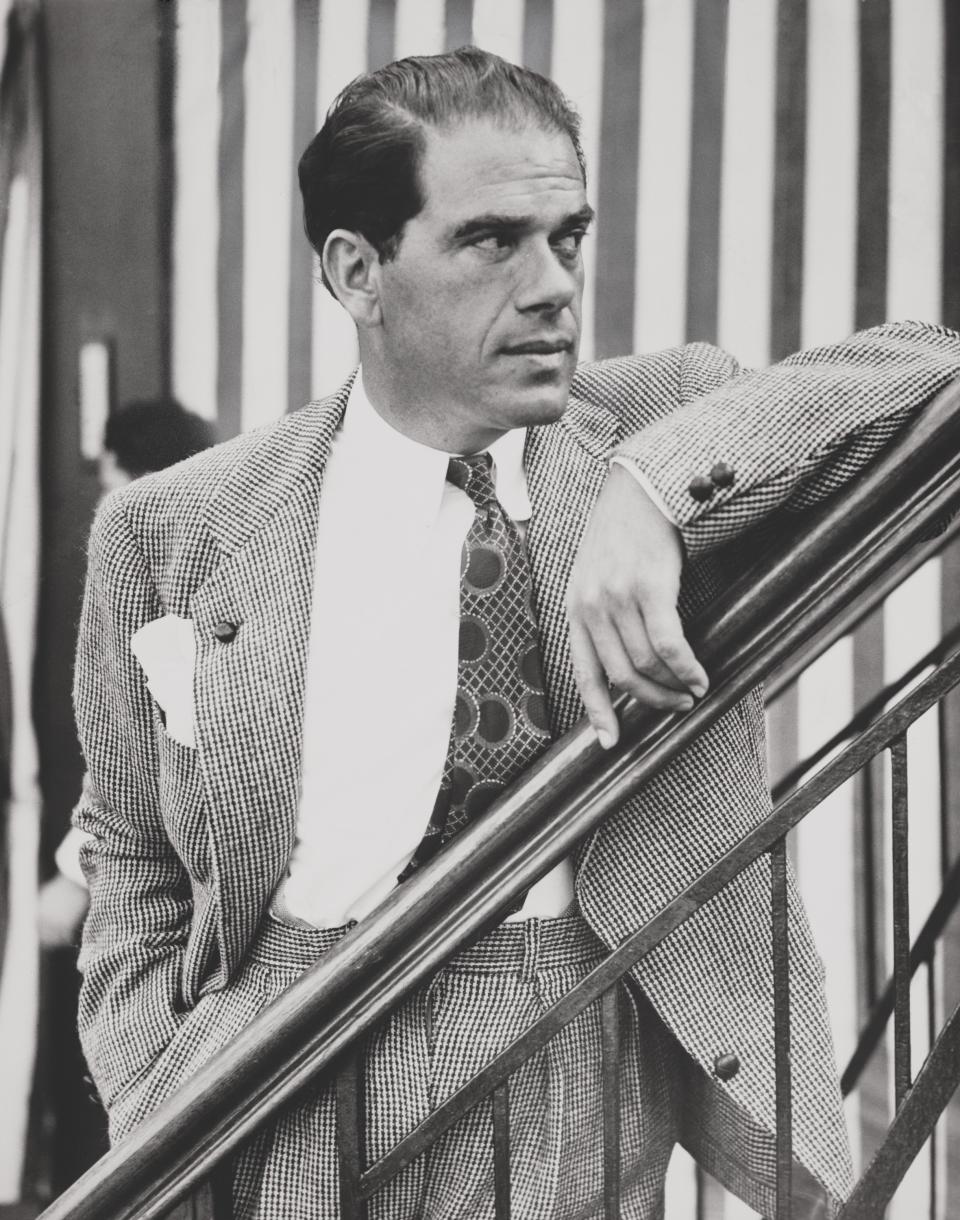
Capra not only achieved great success as a director, winning three Academy Awards, but his films managed to capture a basic Americanness, bedrock qualities the mass of people wanted to believe about themselves in the 1930s and ‘40s – resilient, altruistic, and optimistic despite enormous hardships.
Frank Capra: Mr. America, premiering tonight at the Venice Film Festival, examines the director’s achievements and core elements of his biography. But far from being hagiographic, the documentary by Matthew Wells delves equally into a darker side to Capra’s work and of the man himself. This nuanced portrait offers a fresh perspective on one of the motion picture industry’s seminal figures.
“He made some of the greatest movies in the history of cinema,” Tom Rothman – CEO of Sony Pictures Motion Pictures Group, the umbrella entity over Columbia Pictures where Capra made his greatest films – observes in the documentary. “They’re foundational in the craft of cinema… And they’re fucking great entertainment.”
Francesco Rosario Capra was born in 1897 in the Palermo, Sicily area and came to America at age six – baffled, apparently, at his parents’ decision to trade a rustic but agreeable life for what Capra would describe as a ghetto in Los Angeles. The documentary says he always remained ashamed that his parents were illiterate, perhaps internalizing the contempt directed at poor, Italian immigrants.
“I hated this country,” he says in an archive interview, “and I hated how my family was being treated.”
He only fell in love with America, he recounts, in his 20s when he skipped around Oregon, Utah and California, and became impressed by the people he met: “farmers, barbers, poker players.” He would later claim he got into the motion picture business by chance, responding to a random newspaper ad for a director.
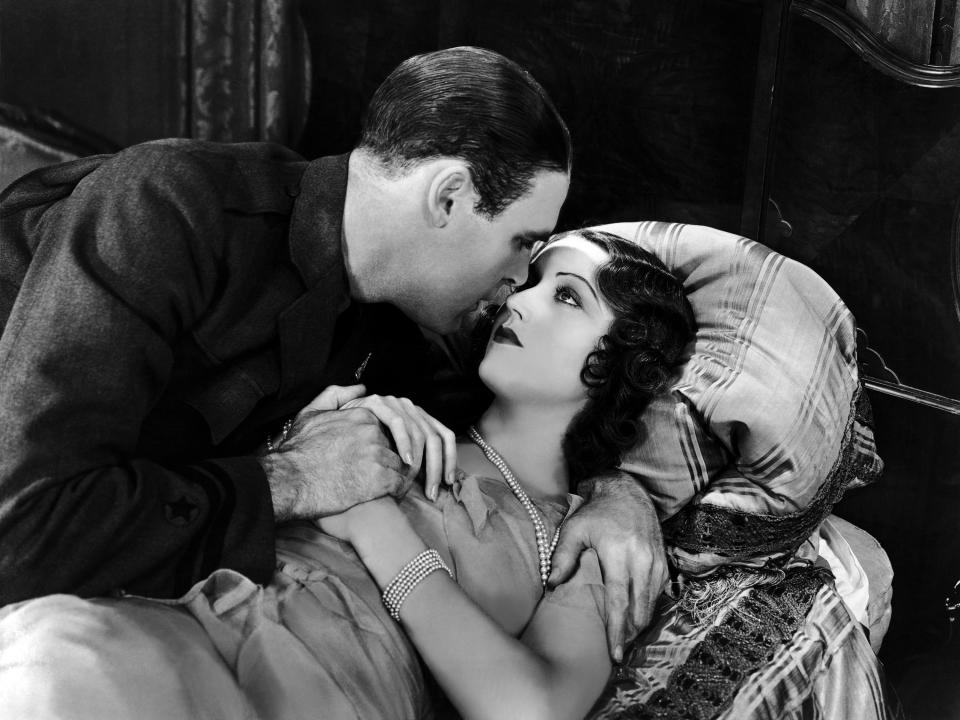
“I didn’t know a piece of film from a piece of toilet paper,” he asserts. That may have been true, but the documentary shows he actually worked his way up from studio janitor to more creative positions before climbing into the director’s chair.
He made silent pictures in the 1920s, often noted for their brilliant comedic imagery. He also made action pictures – Flight in 1929 and Dirigible in 1931. His breakthrough came in 1934 with It Happened One Night, the proto-romantic comedy starring a perfectly matched Clark Gable and Claudette Colbert as two ostensible opposites thrown together by circumstances.

It Happened One Night earned Capra his first Oscar for directing, but it also left him paralyzed with fear about how to follow up such a massive hit. He recalls becoming seriously ill and eventually coming out of it determined to make films with a more overt message. That drive spawned Mr. Deeds Goes to Town in 1936 and Mr. Smith Goes to Washington in 1939 – films that depicted basic American goodness going up against corrupt forces.
“What we learn is that wealth is not the American Dream,” notes Jeanine Basinger, a film scholar who curated Capra’s archives at Wesleyan University in Connecticut. “It’s about contributing to your community, to your country. It’s an honorable sense of being a good man.”
Those were values Americans could rally around during the Great Depression and World War II, when the country faced some of its biggest challenges. Capra was enlisted by the U.S. government during the war to make propaganda films that literally clarified “Why We Fight” – the conclusion being that it was to uphold certain humane principals in contrast to the barbarity of America’s foes.
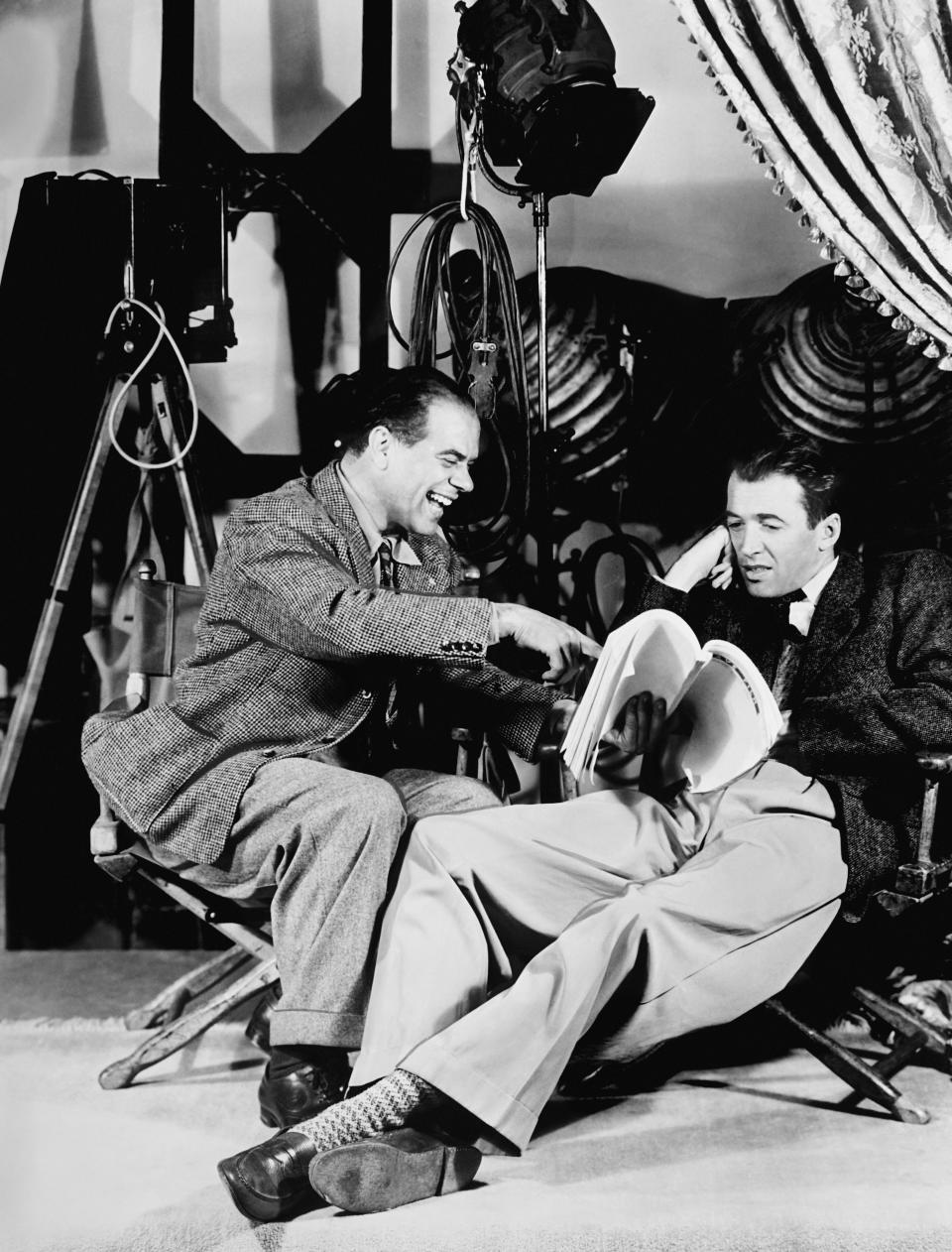
It’s a Wonderful Life came out in 1946, again expressing the importance of altruism over rapacious capitalism. But the documentary deftly shows how, as America moved into the 1950s and fear of Communism became an obsession, Capra’s “message” films, purveying almost socialistic views, acquired a pinkish hue. He was denied a government security clearance to participate in a Korean War committee, all because he had worked earlier in his career with some colleagues of a left-wing bent.
This is point at which the documentary pivots to explore the unsavory side of Capra. It frankly accuses him of shamefully abandoning former colleagues to cleanse himself of any Communist taint.
“He named names of people, and recklessly threw them around, and this all added to the stigma that was attached to those people,” declares Joseph McBride, who wrote a thoroughly researched biography of Capra.
“We know the bad guys – the guys who named names,” says Eric Smoodin, author of a book on Capra, “the Elia Kazans and the others who were happy to name names – Clifford Odets, others like him. What Capra did is probably certainly on that spectrum.”
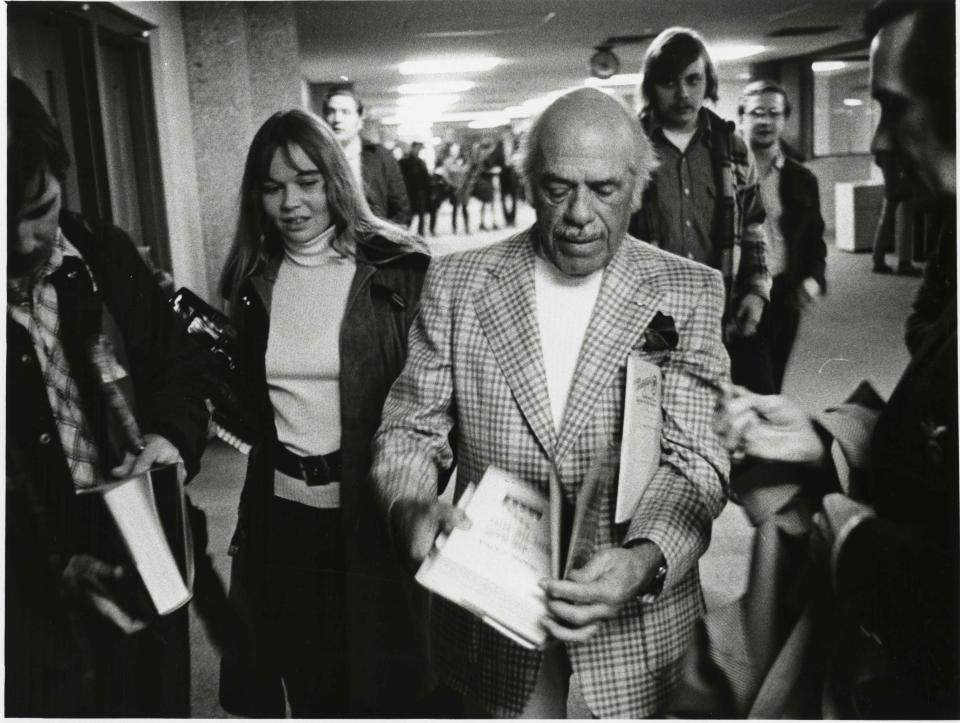
McBride interviewed Capra at length and says in conversation the director denigrated Black people, Jews, Mexicans, and even Italian Americans. He also says the filmmaker’s autobiography Frank Capra: The Name Above the Title, published in 1971, is a work of self-mythologizing fiction. He suggests a degree of hypocrisy in Capra joining a conservative country club set in the Palm Springs, Calif. area even as he styled himself a man of the people. He had always been a Republican (despite the impression some of his films might have conveyed) but as he aged he took a harder view of anyone who didn’t pull themselves up by the bootstraps as he had.
Smoodin also notes a blind spot in Capra’s cinematic oeuvre. “Capra’s films have an expansiveness to them. They seem to speak to the desires of many people in the audience. But they also have incredible limits to them,” he says. “We can see that in the overarching whiteness of his films, in his unwillingness to talk about anything other than whiteness for the most part.”
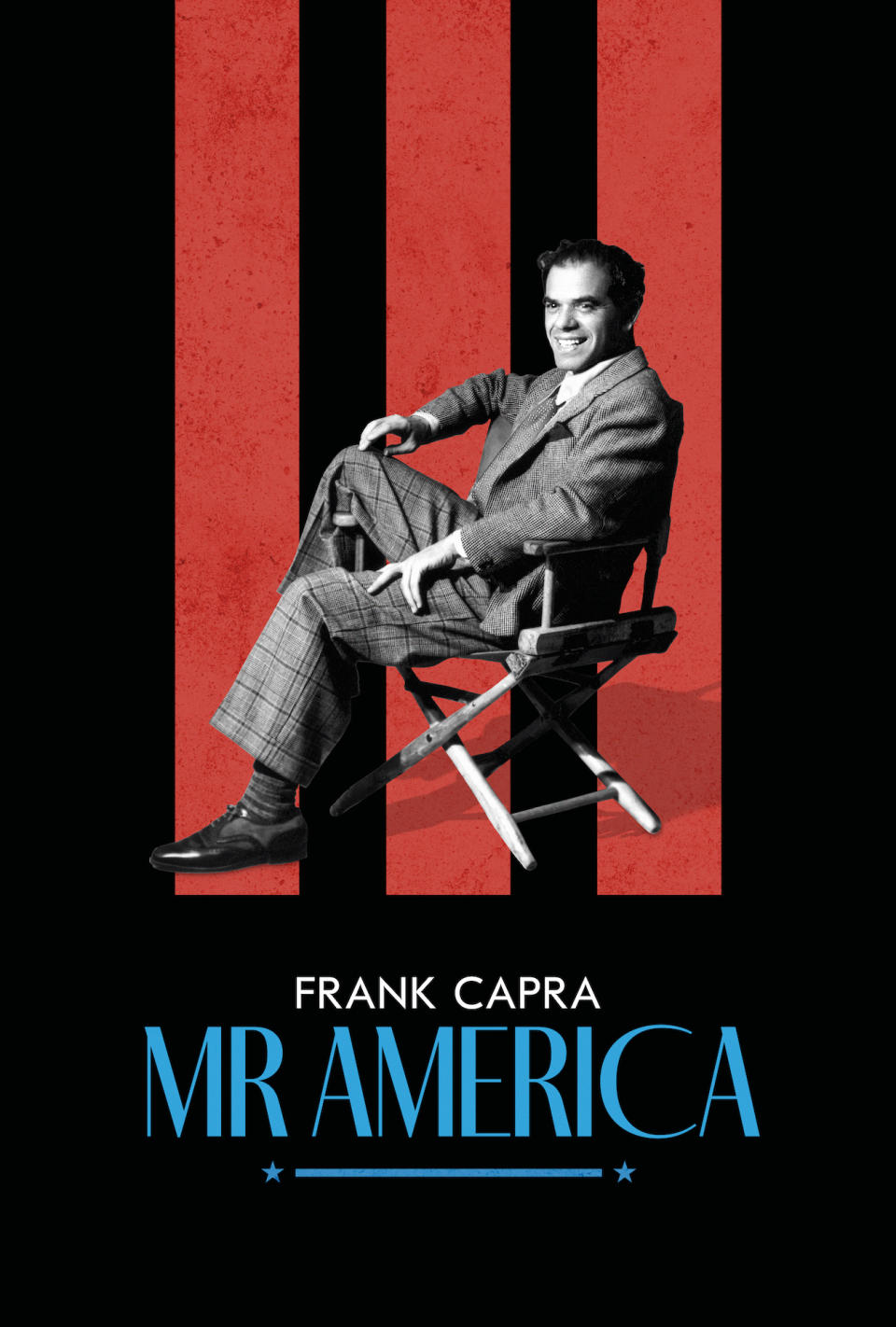
It’s an important observation, but one wishes Wells had drafted a somewhat more diverse group of people to comment on Capra’s life and work. All of the experts in his film are white. It might have been interesting to hear the perspective of a person of color on the Capra canon.
That criticism notwithstanding, Frank Capra: Mr. America ranks with other outstanding documentaries about filmmakers, including Susan Lacy’s film Spielberg, Kent Jones’ Hitchcock/Truffaut, and Richard Linklater: Dream Is Destiny, directed by Louis Black and Karen Bernstein. It also makes an important observation that Capra’s time may be coming around again. In a fractured and polarized America, Capra’s vision of a country that can cohere around a set of positive values sounds distinctly appealing.
Title: Frank Capra: Mr. America
Festival: Venice (Venice Classics section)
Director: Matthew Wells
Running time: 92 minutes
Best of Deadline
Sign up for Deadline's Newsletter. For the latest news, follow us on Facebook, Twitter, and Instagram.

